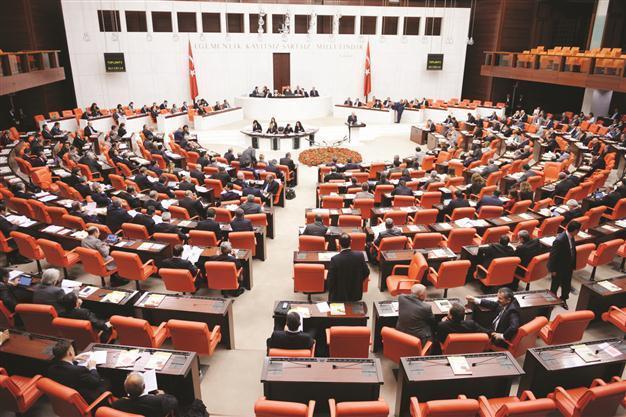Funding for Presidential elections spark concern
ANKARA - Hürriyet Daily News

The provisions are part of a draft law on the procedures that would guide Turkey’s first popular vote to elect a president ahead of a final vote at the General Assembly. DAILY NEWS photo, Selahattin SÖNMEZ
Draft provisions on fund-raising in presidential elections have sparked concern among the opposition on grounds that no mechanism would be in place to supervise the donations and penalize wrongdoing before the winner is confirmed.
The provisions are part of a draft law on the procedures that would guide
Turkey’s first popular vote to elect a president, approved Jan. 12 at Parliament’s
Constitution Commission ahead of a final vote at the General Assembly. Overriding objections from the opposition,
Justice and Development Party (
AKP) secured the adoption of the bill, which is also intended to fix President
Abdullah Gül’s term to seven years and hold the vote for his successor in 2014.
“Donations and donors must be publicized before the vote so that voters can make their choice accordingly. What if the elected president turns out to have collected unlawful donations, will the election be declared invalid?” main opposition Republican People’s Party (CHP) deputy Ali Özgündüz told the
Hürriyet Daily News.
Making the donations public once the election is over would be of no use as the president cannot be prosecuted, Özgündüz said, adding that the draft does not envisage any sanctions for wrongdoing anyway.
“Some AKP deputies [at the Constitution Commission] agreed with our objections but voted against our proposals. Obviously, the ruling party wants this law passed. Nonetheless, we will submit the same proposals during the debate at the General Assembly,” he added.
Under the draft, donations for candidates would be made public weeks after the winner is confirmed.
Financing campaigns
Nationalist Movement Party (MHP) deputy Faruk Bal maintained that presidential candidates should receive funds from the state to finance their campaigns.
Under the draft, candidates would be banned from raising money from legal entities, foreign states and nationals, and international organizations. The maximum amount a donor would be allowed to contribute for each round of voting would be equivalent to the monthly salary of the highest-paid public employee, or about 8,250 liras at present.
All documents concerning donations and expenditure would be handed over to the Supreme Election Board (YSK) within 10 days following the confirmation of the elections results.
The YSK would then have one month’s time to examine them. The Treasury would seize amounts exceeding the legal donation limit and any unspent money.
In stark contrast, donations in the United States are made public throughout the campaigns.
Separately, the CHP warned that fixing Gül’s term to seven years amounted to planting a “time bomb” within the state, insisting the president was entitled to a once-renewable, five-year term under the current Constitution.
Turkish, Hürriyet daily news,
